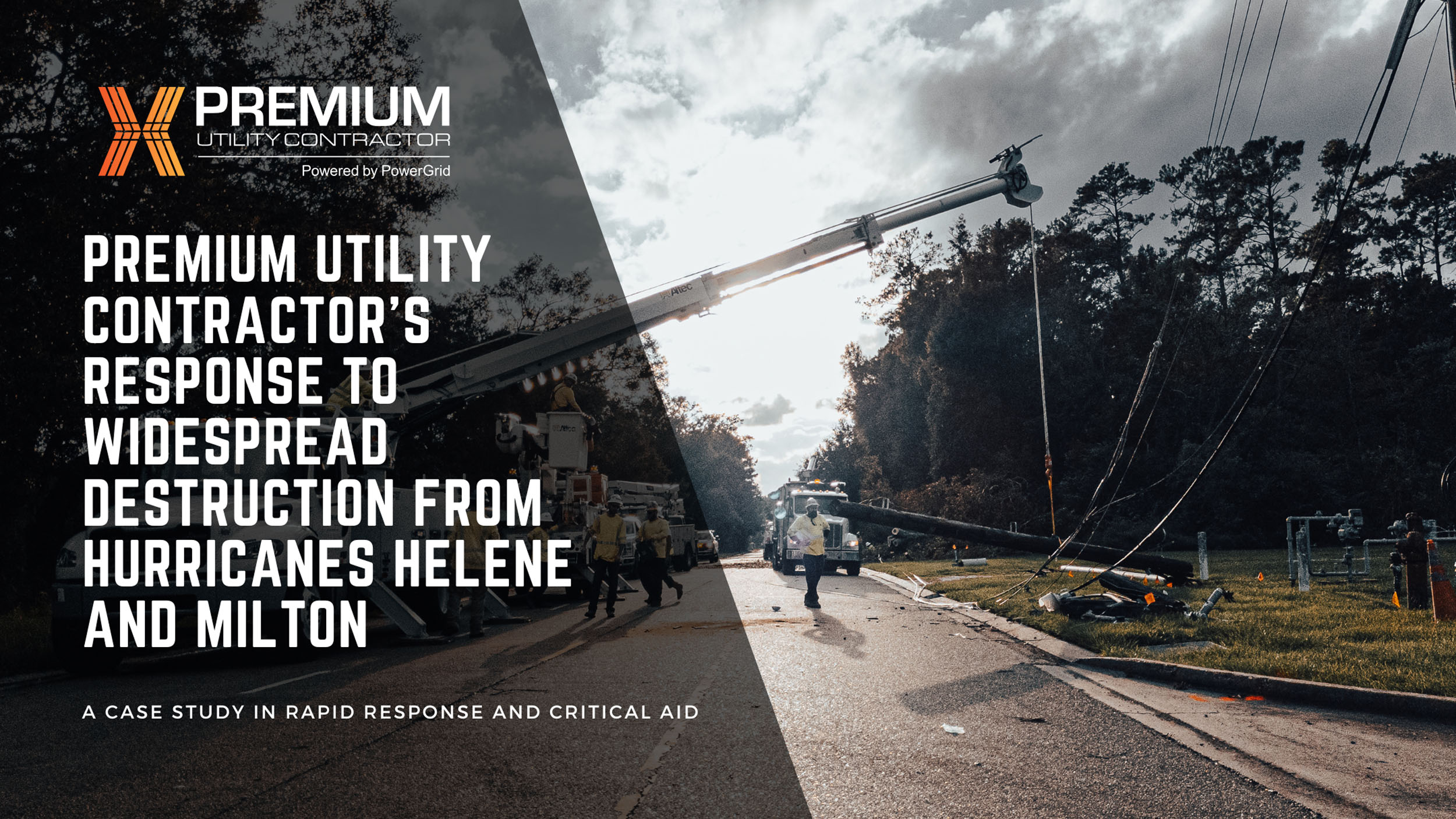
Back-to-back hurricanes ravaged the Southeast in September and October 2024. While communities sorted through the damage, Premium Utility Contractor deployed its proven solutions to help restore power.
Hurricane Helene hit first, bringing damaging wind to communities many miles from the coast in Florida’s Big Bend region. It then dumped catastrophic amounts of rain on parts of Georgia, North Carolina, and South Carolina. Milton arrived less than two weeks later. Though it tracked south of Helene, it still battered Florida’s western coast.
The two storms combined to wipe entire communities off the map, causing billions of dollars in damage, and knocked out power to millions of people.
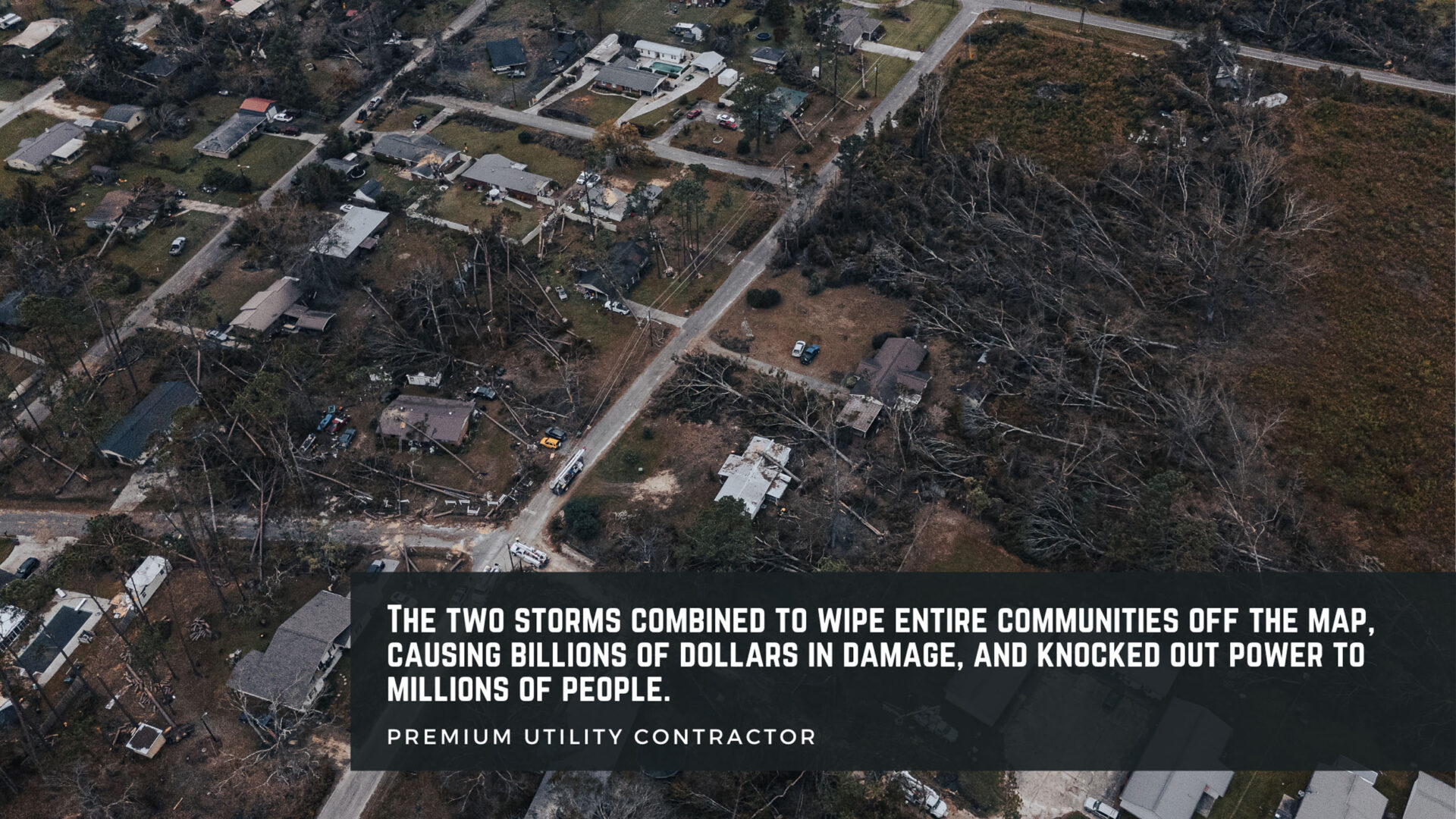
Premium supported its local utility clients in the aftermath with an army of roughly 530 personnel and a footprint that spread across the region. Restoration crews worked in Florida, Georgia, South Carolina, and North Carolina. Vegetation management workers joined the response in Florida and South Carolina. Damage assessment crews also deployed in the Sunshine State.
Premium did its homework before Helene even formed. Crews wrapped up their response to Hurricane Francine, which impacted Louisiana, in mid-September. Staff completed routine maintenance and care to keep tools and equipment in top shape. After roughly one week, they were back in action for Helene.
Premium benefited from its network of laydown yards in multiple states, which allows staff to support several areas of the country simultaneously if needed.
In this case, Premium’s fleet department monitored forecasts and secured the kind of off-road machinery, tracked vehicles, and swamp buggies they might need to navigate flooded territory in Helene’s wake.
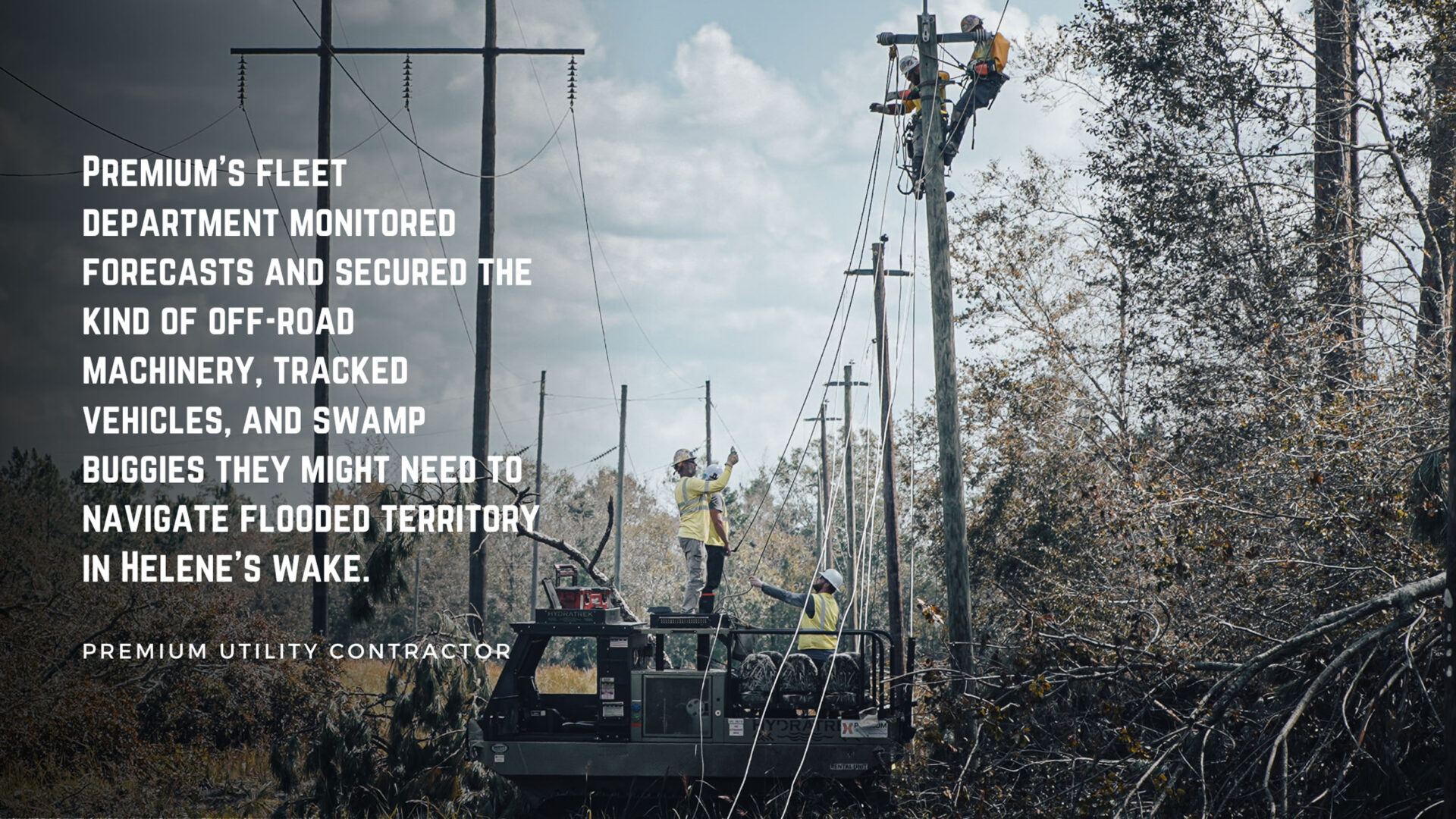
As the storm clouds cleared, citizens and professionals involved in the response took stock of the damage. Flooding in Florida’s low-lying countryside was challenging but not unprecedented. The Carolinas, meanwhile, were devastated.
Premium worked in lockstep with local authorities, especially in cases where the roads were too badly damaged for bucket trucks to pass. In some places where the floodwater lingered, crews had to wait for the waters to recede. In one part of Georgia, the solution came when bulldozers reconstructed an impassable roadway. Where Premium needed to get into towns immediately, crews used waders, their off-road tracked machines, and/or their swamp buggies to get where they needed to go.
Helene alone killed more than 200 people. Countless others were stranded on rooftops or in their homes. Premium stayed in communication with counterparts on the ground and stepped back when search and rescue operations superseded restoration efforts.
In Tampa, Premium went above and beyond the task of simply restoring power by helping rescue civilians and donating generators to people in need. Premium partnered with local law enforcement and Grey Bull, a nonprofit, to deploy airboats and other vehicles. In total, Premium bought 20 generators for struggling families who lost power. Many people who received the generators had medical conditions and infant children.
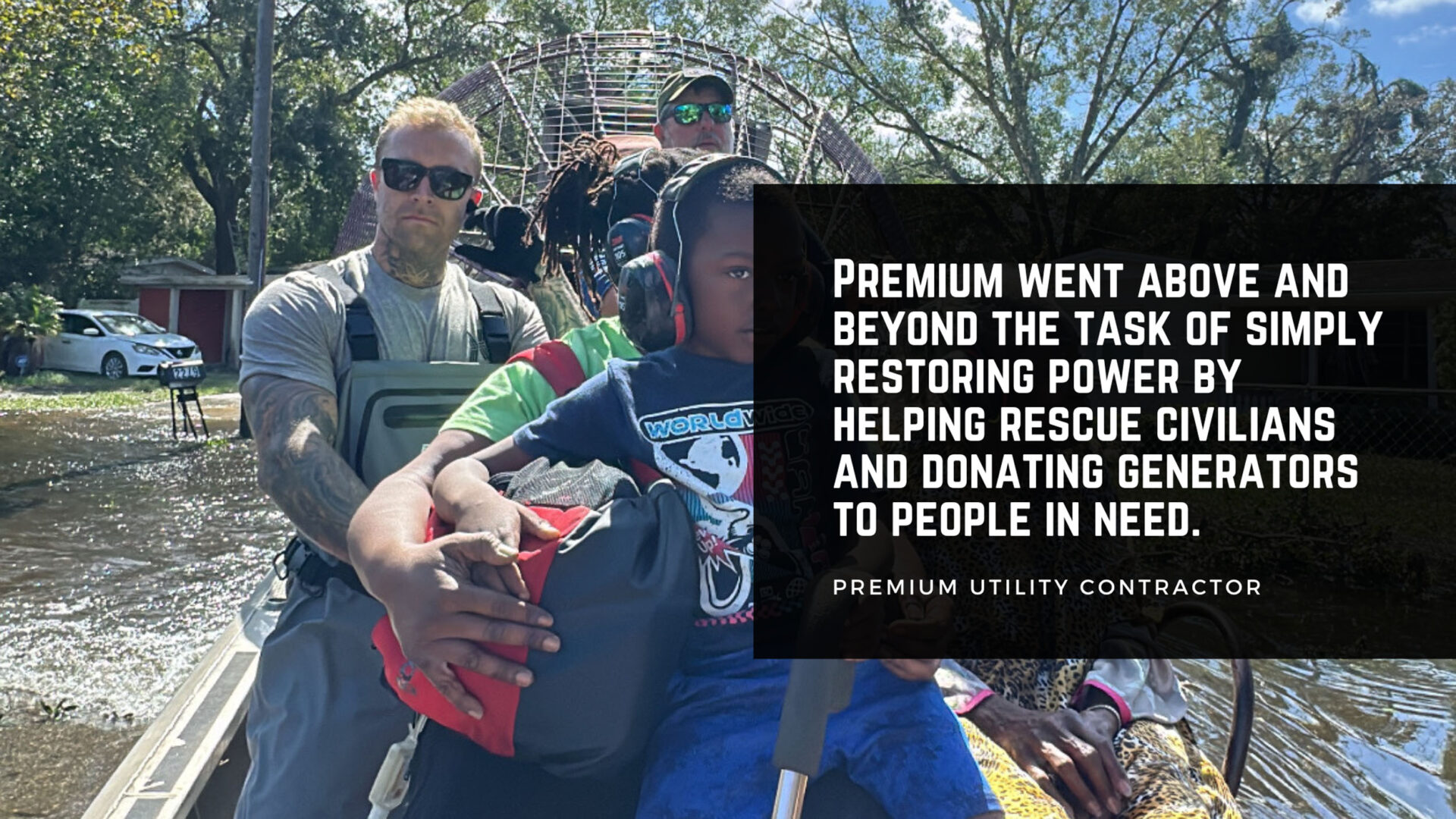
As Milton took shape, it again circled Tampa and surrounding communities in its bullseye. Still hard at work after Helene, Premium’s crews adjusted their plans and stayed on the job for a prolonged restoration effort.
Premium already had the tools and equipment it needed. As the larger network of people and entities working in the disaster area adjusted for Milton’s effects, Premium responded to mutual aid requests as needed across state and county lines. Beyond lineworkers, management staff navigated the logistics puzzle to ensure they met customers’ needs with high-quality and safe work.
Premium’s property wasn’t spared from the storms. Helene causes limited flooding issues at a laydown yard in Pikeville, Tennessee. Since Premium pre-staged its crews and mobilized before Helene, though, the damage didn’t impact the storm response. This allowed Premium to deliver its time-tested level of service as expected.
Premium benefited from its devoted workforce of general foremen and their corresponding crews before, during, and after this year’s hurricanes. When the need arose, work crews rushed to their positions. Management staff coordinated with local utilities. Once in place, crews integrated with the utilities for the herculean task of repairing the energy grid.
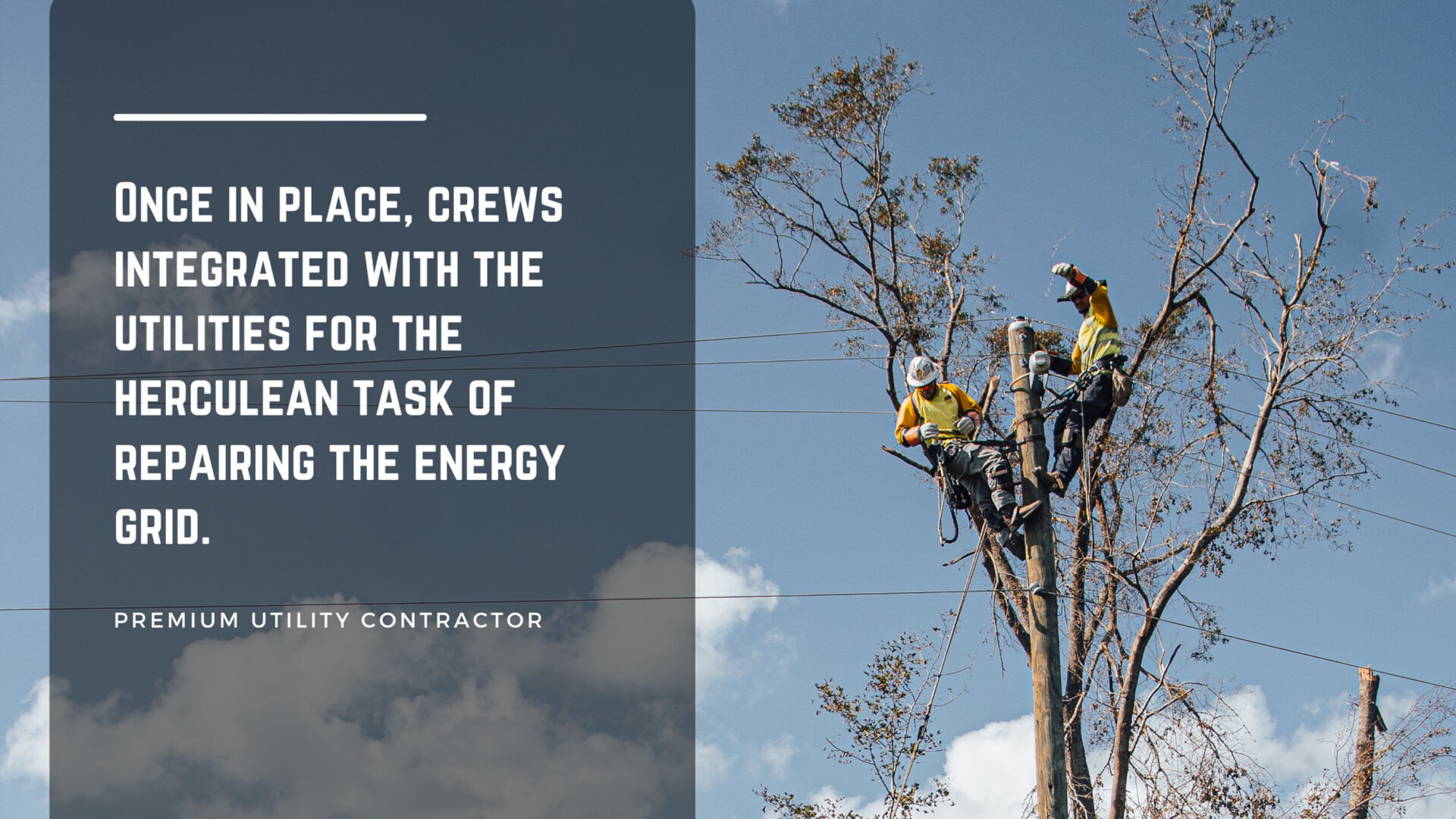
The recovery efforts in some spots will continue long into the future. But as with any of its responses, Premium helped start the Southeast off on the right foot and supported the community in their moment of dire need.
